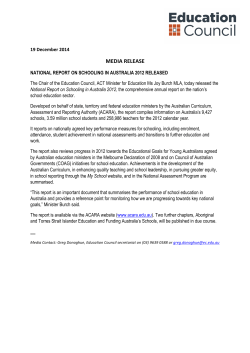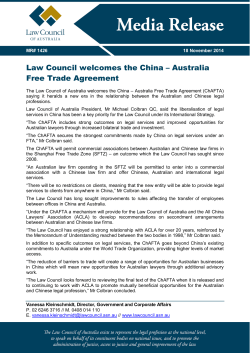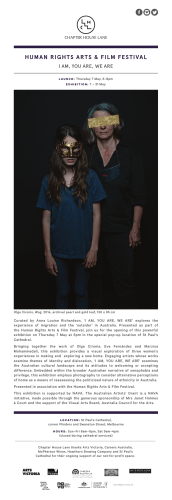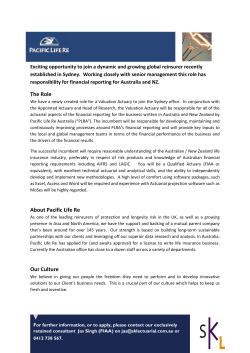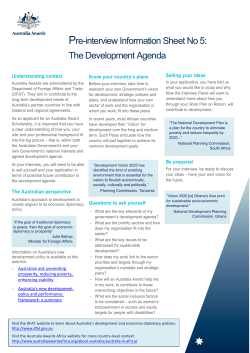
the Flyer
Health Professionals’ Role in Advance Directives for People with Dementia Decision making in advance and putting enduring powers in place are important for everyone, but particularly for people with dementia. Understanding the law and practice associated with advance directives, advance care planning and the role of the Guardianship Board is an essential part of the role of health professionals. However, many health professionals are unable to assist their clients with advance care planning due to a lack of understanding around the issues. Date: Tuesday, 9th June 2015 Time: 9.30 am - 4.30 pm Venue: Room 1, Liebig Building Alice Springs Hospital Cost: No charge Catering: Morning tea and lunch provided Scholarships: A limited number of scholarships towards travel expenses are available. This scholarship is open to all participants (see attachment) To register: Click here REGISTRATION IS ESSENTIAL. Confirmation of your registration will be sent via email. For more information, please contact Julie on 08 8372 2100 or at [email protected] DTSCs are funded by the Australian Government Department of Social Services Visit www.dss.gov.au for more information www.dtsc.com.au Learning Objectives: 1. Understand the ethical and legal principles which underpin advance directives in Northern Territory; 2. Understand the process of completing the documents, including access to legal information and witnessing; 3. Identify the issues and barriers that inhibit people from completing the documents before the loss of capacity; 4. Identify the different legal and policy documents in Northern Territory; 5. Understand the role of the Guardianship Board and the Public Advocate; 6. Understand the recommendations of the NT Advance Directive Review—future directions; 7. Discuss the complexities and issues for families when a person loses their decision-making capacity. Recommended for: Health professionals working with people living with dementia, including, but not limited to, doctors, nurses, occupational and diversional therapists, physiotherapists, psychologists, social workers, speech pathologists and tertiary level students. Facilitators: Margaret Brown is a social scientist and a consultant in advance care planning and bio ethics. She is a Research Fellow with the Hawke Research Institute, University of South Australia and the School of Medicine, University of Adelaide. Her research over many years has focused on advance care directives, resuscitation and decision making at the end of life. She was the Deputy Chair of the South Australian Advance Directive Review Committee, and the End-of-Life Working Group with SA Health. She has been involved with the Palliative Care Council since its inception and continues to work towards improving the care of people who are dying. Margaret has served on the Guardianship Board and currently works with the Public Advocate (SA) on the Supported Decision Making Project. She has run seminars on advance directives for Alzheimer’s Australia for many years. In 2013 she was appointed by the SA Minister of Health to the End-of-Life Ministerial Advisory Committee. Lin Gilfillan (LLB. LLM, Diploma of Legal Practice) has been in private legal practice for 25 years, and has a particular interest in civil litigation, advance directives and end-of-life decision making. She has also taught at the University of South Australia, University of Adelaide and Law Society of South Australia. Lin was appointed to the Guardianship Board in 1999, was acting President in 2007-2008 and has sat in both the general and appeal divisions. She recently commenced as part-time senior member of the South Australian Civil and Administrative Tribunal (SACAT) . In 2010, Lin was invited to contribute as a member of the SA Health, End-of-Life Decision Making Project and continued in that role until 2012. She was also the Convenor of the Council of Australasian Tribunals SA Chapter, previously serving as a committee member and Vice Convenor. This is a representative body for Board and Tribunal members, providing ongoing education and support. Lin stepped down from that role in 2013 and continues to contribute as a committee member. DTSCs are funded by the Australian Government Department of Social Services Visit www.dss.gov.au for more information www.dtsc.com.au
© Copyright 2026
